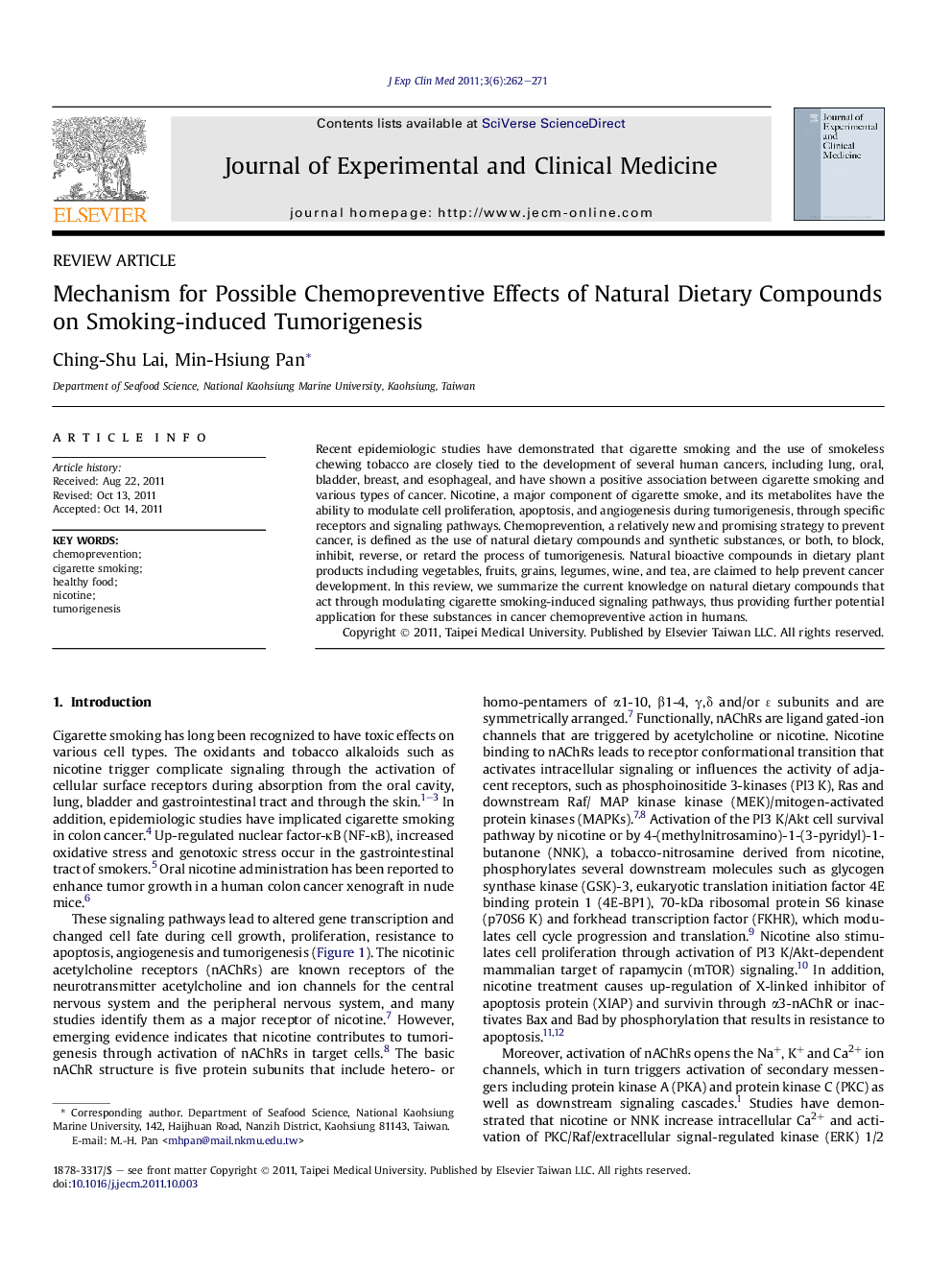| Article ID | Journal | Published Year | Pages | File Type |
|---|---|---|---|---|
| 3478005 | Journal of Experimental & Clinical Medicine | 2011 | 10 Pages |
Recent epidemiologic studies have demonstrated that cigarette smoking and the use of smokeless chewing tobacco are closely tied to the development of several human cancers, including lung, oral, bladder, breast, and esophageal, and have shown a positive association between cigarette smoking and various types of cancer. Nicotine, a major component of cigarette smoke, and its metabolites have the ability to modulate cell proliferation, apoptosis, and angiogenesis during tumorigenesis, through specific receptors and signaling pathways. Chemoprevention, a relatively new and promising strategy to prevent cancer, is defined as the use of natural dietary compounds and synthetic substances, or both, to block, inhibit, reverse, or retard the process of tumorigenesis. Natural bioactive compounds in dietary plant products including vegetables, fruits, grains, legumes, wine, and tea, are claimed to help prevent cancer development. In this review, we summarize the current knowledge on natural dietary compounds that act through modulating cigarette smoking-induced signaling pathways, thus providing further potential application for these substances in cancer chemopreventive action in humans.
